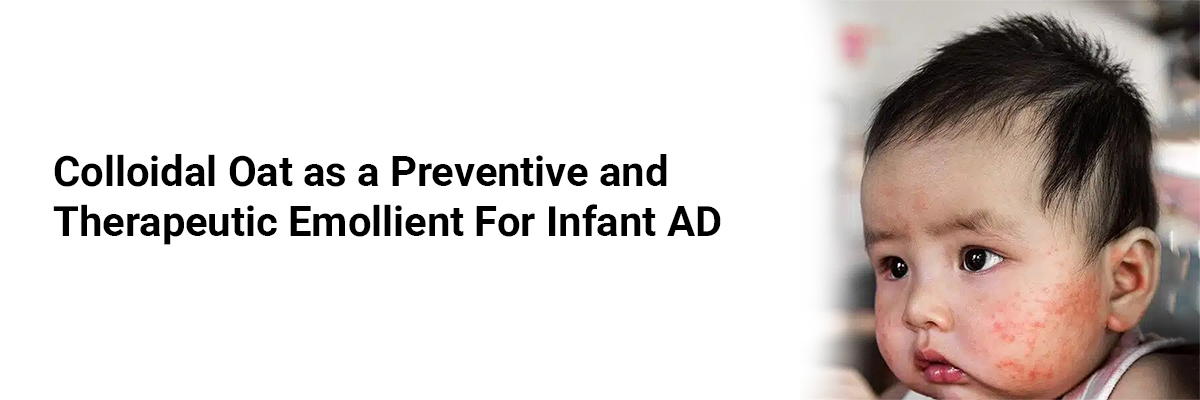
Colloidal Oat as a Preventive and Therapeutic Emollient for Infant AD
Atopic dermatitis (AD) is a chronic inflammatory skin disease characterized by skin barrier dysfunction and immune imbalances, which often lead to increased allergen exposure, sensitization, and secondary infections. Colloidal oat emollients were widely used in adult AD treatment, but their effectiveness in children and their role in preventing AD and allergies remained under investigation.
A comprehensive review of clinical and preclinical studies assessed the use of colloidal oat emollients in pediatric AD treatment and prevention. This review focused on their impact on skin barrier function, immune modulation, atopic dermatitis (AD) prevention, food allergy risk, and healthcare utilization.
Findings showed that colloidal oat emollients improved skin hydration, reduced transepidermal water loss, and supported skin barrier repair. These effects led to fewer AD flare-ups and less reliance on steroid treatments. Some studies indicated that early and consistent use of these emollients might reduce AD incidence in high-risk infants and lower rates of food allergy sensitization.
Real-world data also revealed that children using colloidal oat emollients had fewer clinic visits and lower healthcare costs. Concerns about oat sensitization were mostly unsupported.
Overall, colloidal oat emollients were effective, well-tolerated, and cost-effective for managing pediatric atopic dermatitis (AD). Their barrier-restoring and anti-inflammatory properties may reduce the risk of AD and allergies. Future research should compare different emollients to optimize treatment strategies.
(Source: Journal of Dermatological Treatment, 36(1). https://doi.org/10.1080/09546634.2025.2487945













Please login to comment on this article